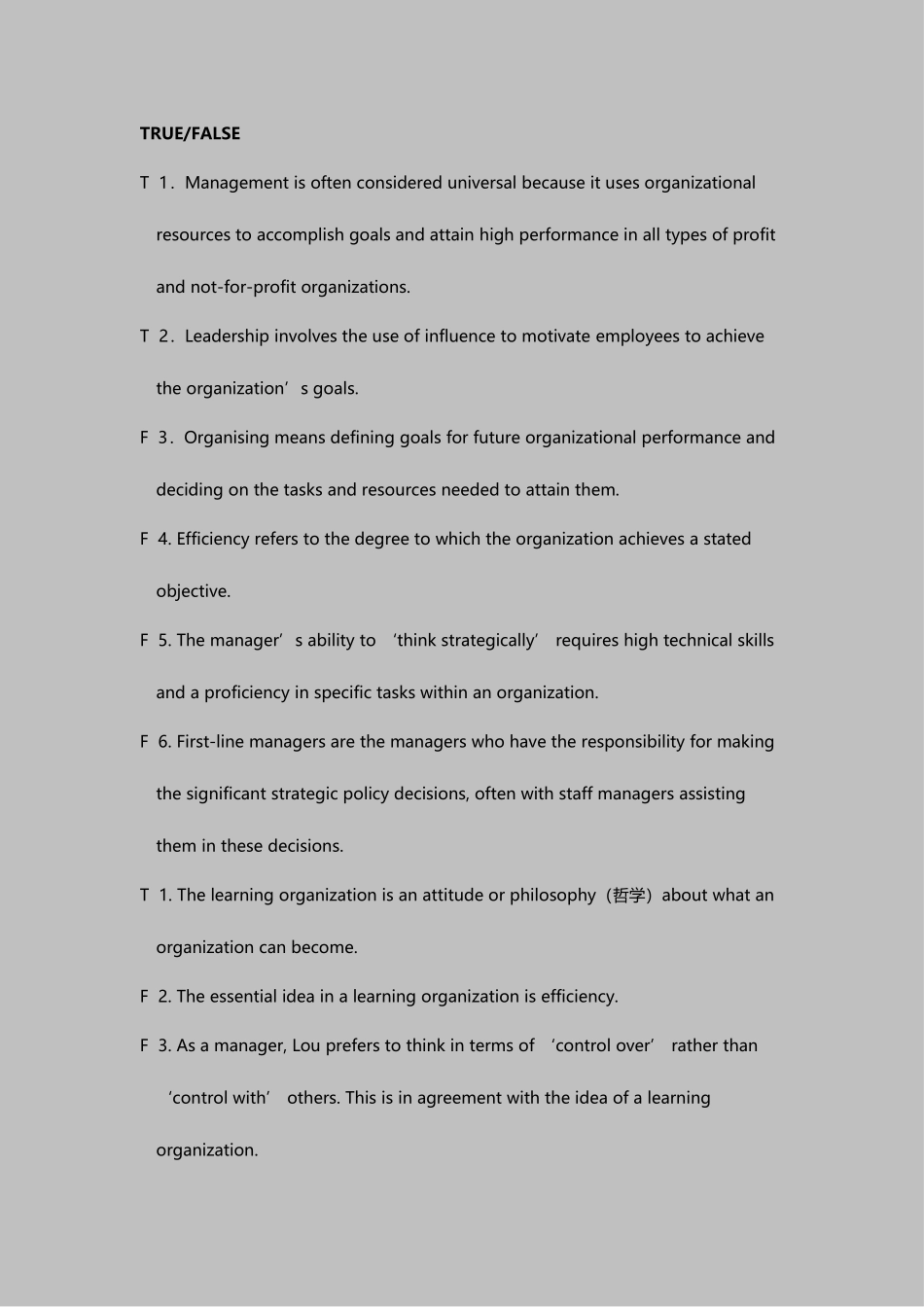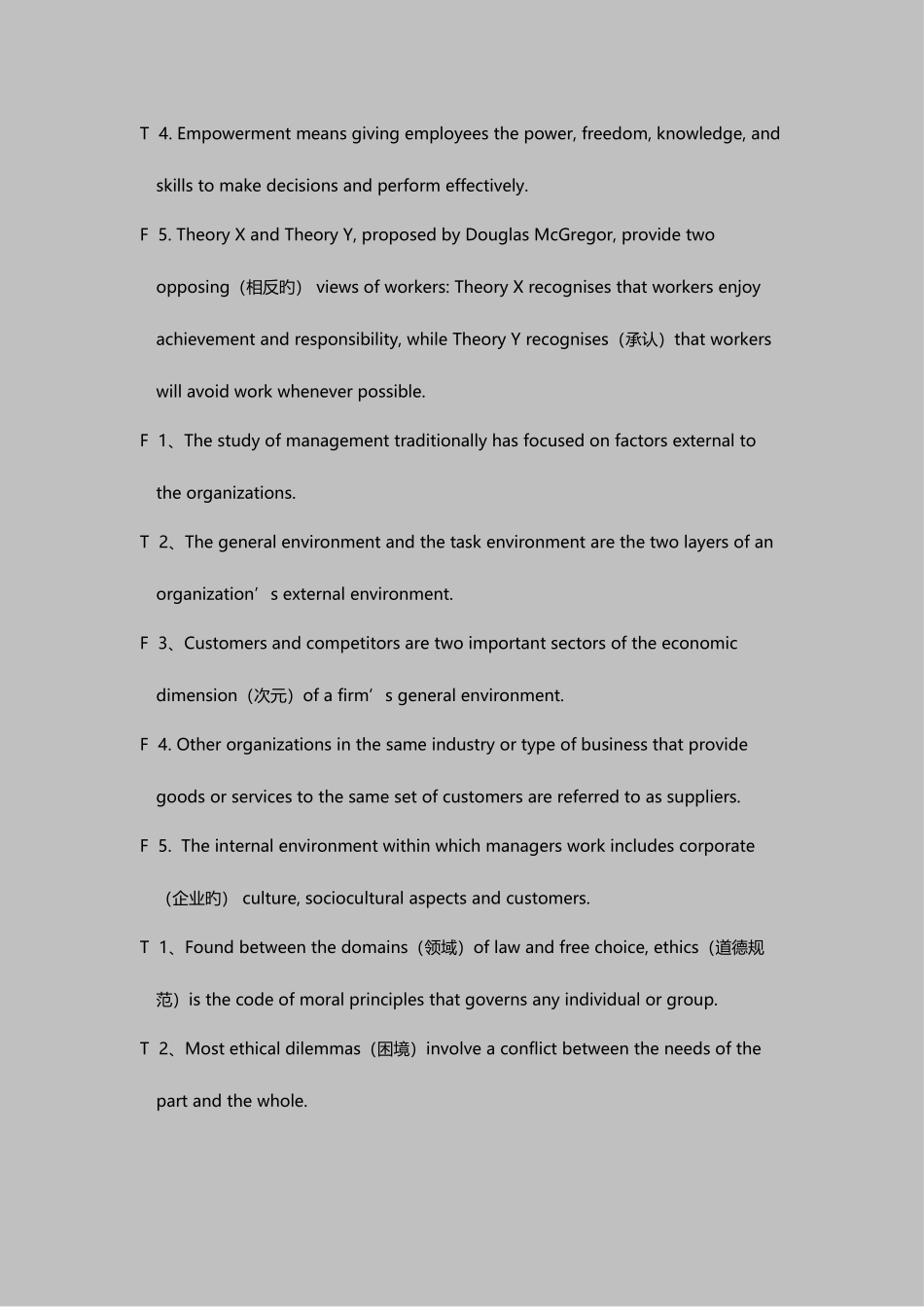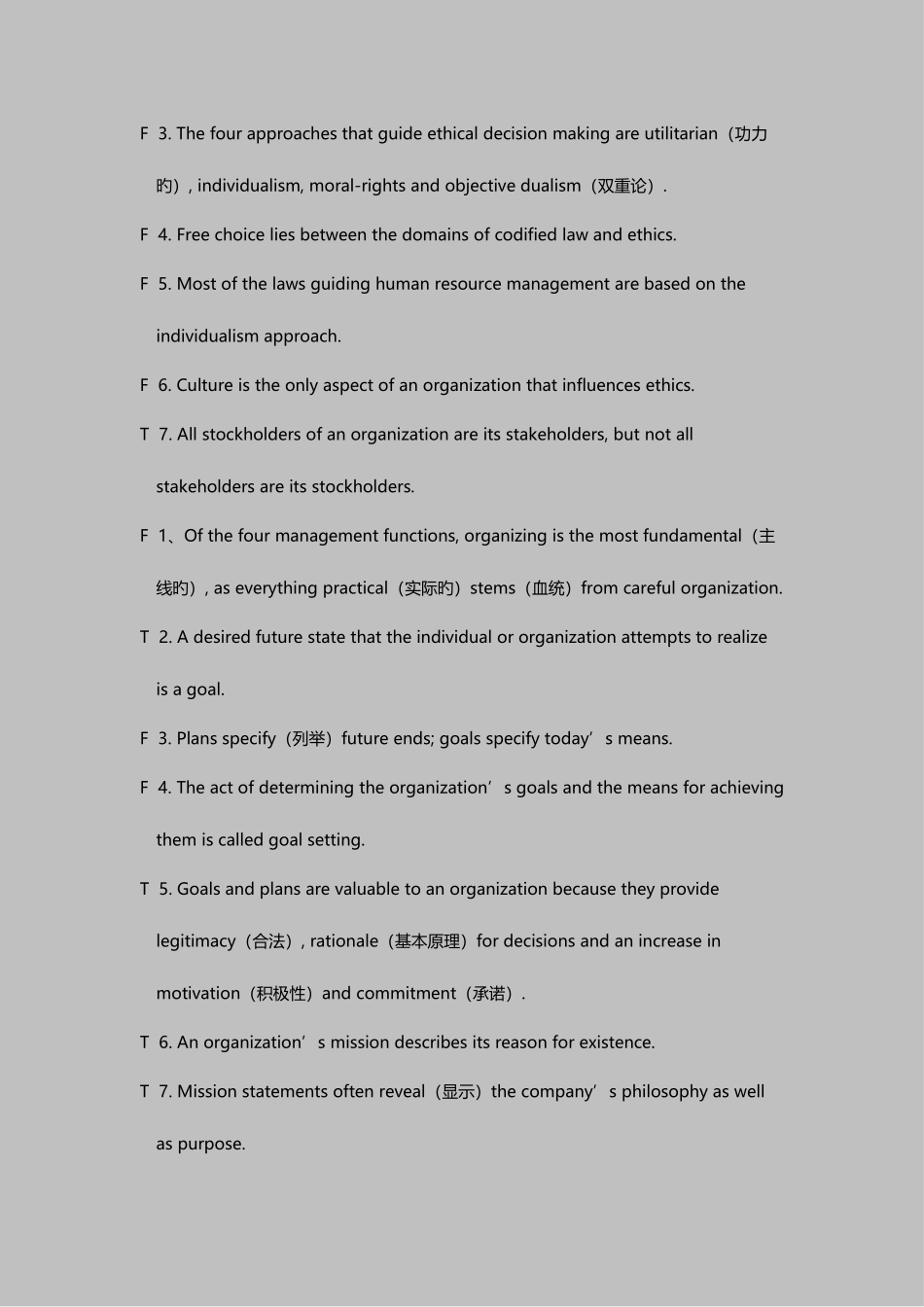TRUE/FALSE T 1.Management is often considered universal because it uses organizational resources to accomplish goals and attain high performance in all types of profit and not-for-profit organizations. T 2.Leadership involves the use of influence to motivate employees to achieve the organization’s goals. F 3.Organising means defining goals for future organizational performance and deciding on the tasks and resources needed to attain them. F 4. Efficiency refers to the degree to which the organization achieves a stated objective. F 5. The manager’s ability to ‘think strategically’ requires high technical skills and a proficiency in specific tasks within an organization. F 6. First-line managers are the managers who have the responsibility for making the significant strategic policy decisions, often with staff managers assisting them in these decisions. T 1. The learning organization is an attitude or philosophy(哲学)about what an organization can become. F 2. The essential idea in a learning organization is efficiency. F 3. As a manager, Lou prefers to think in terms of ‘control over’ rather than ‘control with’ others. This is in agreement with the idea of a learning organization. T 4. Empowerment means giving employees the power, freedom, knowledge, and skills to make decisions and perform effectively. F 5. Theory X and Theory Y, proposed by Douglas McGregor, provide two opposing(相反旳) views of workers: Theory X recognises that workers enjoy achievement and responsibility, while Theory Y recognises(承认)that workers will avoid work whenever possible. F 1、The study of management traditionally has focused on factors external to the organizations. T 2、The general environment and the task enviro...


